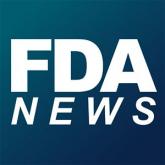News

Cardiology groups push back on hydroxychloroquine, azithromycin for COVID-19
Both drugs are known to cause torsade de pointes and increase the risk of other arrhythmias, say the AHA, ACC, and HRS.
Hydroxychloroquine, which has been touted without definitive scientific support as a treatment for COVID-19 infection, has special significance for the millions of US military service members and veterans who served in Southwest Asia and other countries with endemic malaria: It’s a critical antimalarial drugs. It’s also needed for US Department of Veterans Affairs (VA) patients with rheumatoid arthritis.
On March 24, the VA Inspector General (IG) surveyed VA medical facilities to determine shortages in equipment as well as “antibiotics, sedatives, pain, and antiviral medications,” although there no known effective treatments for COVID-19. The OIG reported that 12 facilities indicated that they anticipated a shortage of medications, including hydroxychloroquine, lopinavir/ritonavir, IV immunoglobulin, and nebulizer products in the next 14 to 28 days. Facilities in West Haven, CT; Martinsburg, WV; Baltimore, MD; Washington, DC; Durham, NC; Columbia, SC; Tampa, FL; Detroit, MI; Temple, TX; Oklahoma City, OK; Aurora, CO; Seattle, WA; and Phoenix, AZ, all indicated anticipated shortages. At least one facility explicitly worried about access to medications and supplies produced in China and concern about disrupted supply chains may have concerned other facilities as well.
Nevertheless, hydroxychloroquine was at the top of mind both OIG inspectors as well as Veterans Health Administration (VHA) officials. In a formal response to the OIG survey, the VHA asserted: “We object to OIG’s assertions that a 14-day supply of chloroquine or hydroxychloroquine would have any merit. This is both inaccurate and irresponsible. There are active investigations into these drugs and many others, as discussed by Dr. Anthony Fauci. Yet no conclusions have been made on their effectiveness. To insist that a 14 days’ supply of these drugs is appropriate or not appropriate displays this dangerous lack of expertise on COVID-19 and Pandemic response.”
Hydroxychloroquine has been associated with serious adverse effects, such as cardiac arrhythmias and hypoglycemia, and its use against COVID-19 is based, so far, on thin evidence. It has shown promise in a laboratory setting against SARS-CoV-2, the virus that causes COVID-19, and in small studies with patients. Nonetheless, the Food and Drug Administration (FDA) has granted limited emergency authorization for certain uses of chloroquine and hydroxychloroquine against COVID-19. The rapid approval came apparently at the behest of the White House.
Former FDA leaders say the authorization has jeopardized research to learn the drugs’ real value in pandemic patients. They also charge that the decision undermines FDA’s scientific authority because it appears to be reacting to political advocacy.
Despite the concerns, a run on chloroquine and hydroxychloroquine has been underway. According to a March 20 blog post by Premier, a hospital purchasing organization, orders for chloroquine and hydroxychloroquine jumped “dramatically” between March 1 and March 17, by 3,000% and 260%, respectively. Fortunately, these are older, relatively inexpensive oral drugs, Premier says, which means their manufacturing is “far less complicated” than for other drugs. To offer immediate help, Premier notes, drug makers such as Teva and Bayer have announced they will donate millions of tablets of the drugs to hospitals or the federal government for further testing.

Both drugs are known to cause torsade de pointes and increase the risk of other arrhythmias, say the AHA, ACC, and HRS.
Dr. Benjamin Davido, an infectious disease specialist at Raymond-Poincaré Hospital in Garches, Paris, discusses the implications of new data on...

The Strategic National Stockpile will work with FEMA to ship the products to states.
